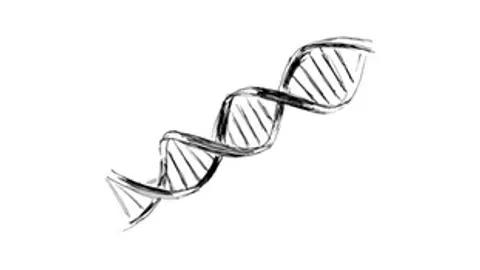Tumor cell: ©nevio – stock.adobe.com
A new clinical readout from the Resistance Drivers for Immuno-Oncology Patients Interrogated by Harmonized Molecular Datasets (RADIOHEAD) study has validated the use of a tissue-free monitoring assay, Guardant Reveal, for the earlier detection of immunotherapy response in patients with advanced solid tumors.1,2
The findings, published in Cancer Research Communications, demonstrate that the liquid biopsy can identify responders and, more critically, non-responders to treatment significantly sooner than conventional imaging methods. This could empower oncologists to make more timely and informed treatment decisions, potentially improving patient outcomes and quality of care.
The collaboration between Guardant Health and the Parker Institute for Cancer Immunotherapy analyzed more than 500 patients with advanced solid tumors, including lung, skin, head and neck, breast, gastrointestinal, genitourinary, and gynecologic cancers. The study was designed to assess if a blood-based monitoring assay could predict treatment response with greater accuracy and speed than standard-of-care methods. By measuring changes in circulating tumor DNA (ctDNA) tumor fraction, the researchers found a strong association between these changes and long-term patient outcomes.
One of the study’s most compelling findings was the ability to identify disease progression up to 5 months earlier than standard-of-care imaging. The data showed that patients with any reduction in tumor fraction had a superior outcome, while those with a decrease of 80% or more had a 75% lower risk of progression. This early signal of therapeutic efficacy or resistance could be a game-changer for a clinical practice where treatment decisions are often delayed while waiting for a patient to show clinical progression via imaging. The ability to pivot to a new therapy earlier could spare patients unnecessary toxicity from an ineffective regimen and provide a more personalized approach to their care.
“Precise serial monitoring at the molecular level provides real value to oncologists and to patients using immunotherapy,” said Craig Eagle, MD, chief medical officer at Guardant Health, in a press release.2 “This study shows that Guardant Reveal has the potential to revolutionize how oncologists assess patient response, identifying earlier insights that can empower them to make informed decisions faster and improve patient outcome and quality of care.”
The RADIOHEAD program, a pantumor, prospective cohort study of 1070 immunotherapy-naive patients, is a significant real-world investigation into immune checkpoint inhibitor regimens.1,2 Conducted across 49 US community oncology clinics, the study collected over 3700 longitudinal blood samples. Multi-omic profiling, including ctDNA analysis, whole-exome sequencing, and high-dimensional immune profiling, was paired with detailed clinical and demographic data. This comprehensive dataset aims to uncover mechanisms of response, resistance, and toxicity, providing deep translational insights that may inform future therapeutic strategies.
The Guardant Reveal assay, which is a methylation-based ctDNA test, provides a tissue-free method for measurable residual disease (MRD) assessment. By utilizing this technology for immunotherapy monitoring, the study expands the clinical utility of liquid biopsies beyond their established use in MRD detection in early-stage cancers like colorectal cancer. The findings provide a new caliber of precision monitoring for patients with advanced cancers.
The implications for clinical practice are significant. With the rise of immune checkpoint inhibitors, which can be costly and have associated toxicities, a tool that can quickly and accurately assess a patient’s response could optimize treatment pathways. The data from the RADIOHEAD study suggests that this technology could help clinicians de-escalate or change therapy for patients who are not responding, and conversely, provide confidence in continuing an effective regimen. The move toward non-invasive, blood-based monitoring for immunotherapy response represents a promising step in advancing precision medicine and improving outcomes for cancer patients.
